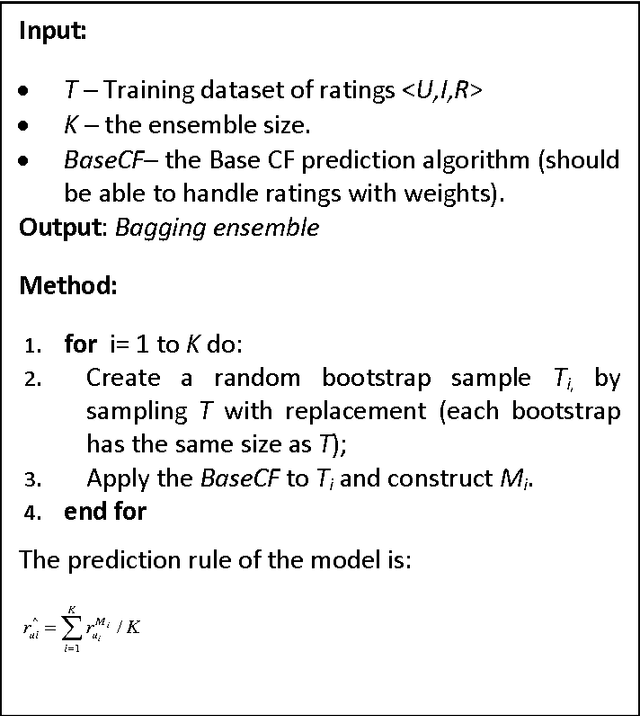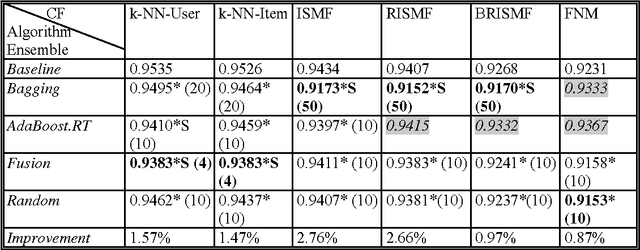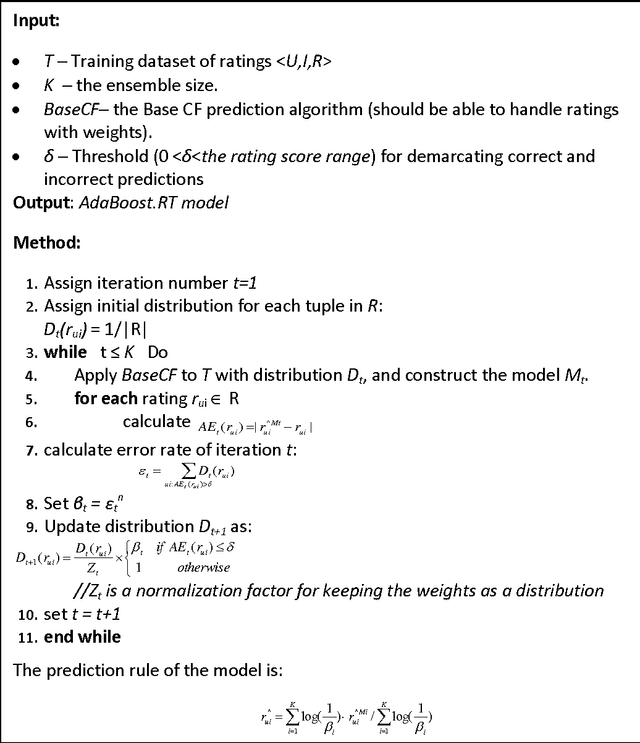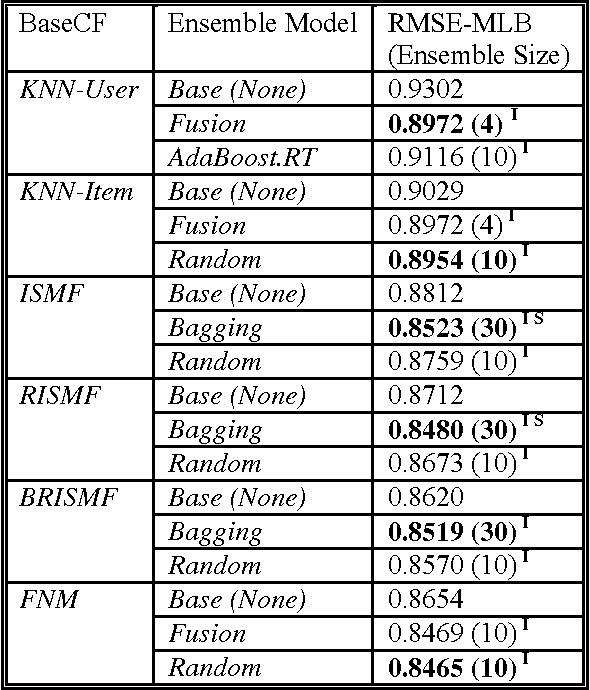Ariel Bar
Boosting Simple Collaborative Filtering Models Using Ensemble Methods
Nov 13, 2012



Abstract:In this paper we examine the effect of applying ensemble learning to the performance of collaborative filtering methods. We present several systematic approaches for generating an ensemble of collaborative filtering models based on a single collaborative filtering algorithm (single-model or homogeneous ensemble). We present an adaptation of several popular ensemble techniques in machine learning for the collaborative filtering domain, including bagging, boosting, fusion and randomness injection. We evaluate the proposed approach on several types of collaborative filtering base models: k- NN, matrix factorization and a neighborhood matrix factorization model. Empirical evaluation shows a prediction improvement compared to all base CF algorithms. In particular, we show that the performance of an ensemble of simple (weak) CF models such as k-NN is competitive compared with a single strong CF model (such as matrix factorization) while requiring an order of magnitude less computational cost.
 Add to Chrome
Add to Chrome Add to Firefox
Add to Firefox Add to Edge
Add to Edge